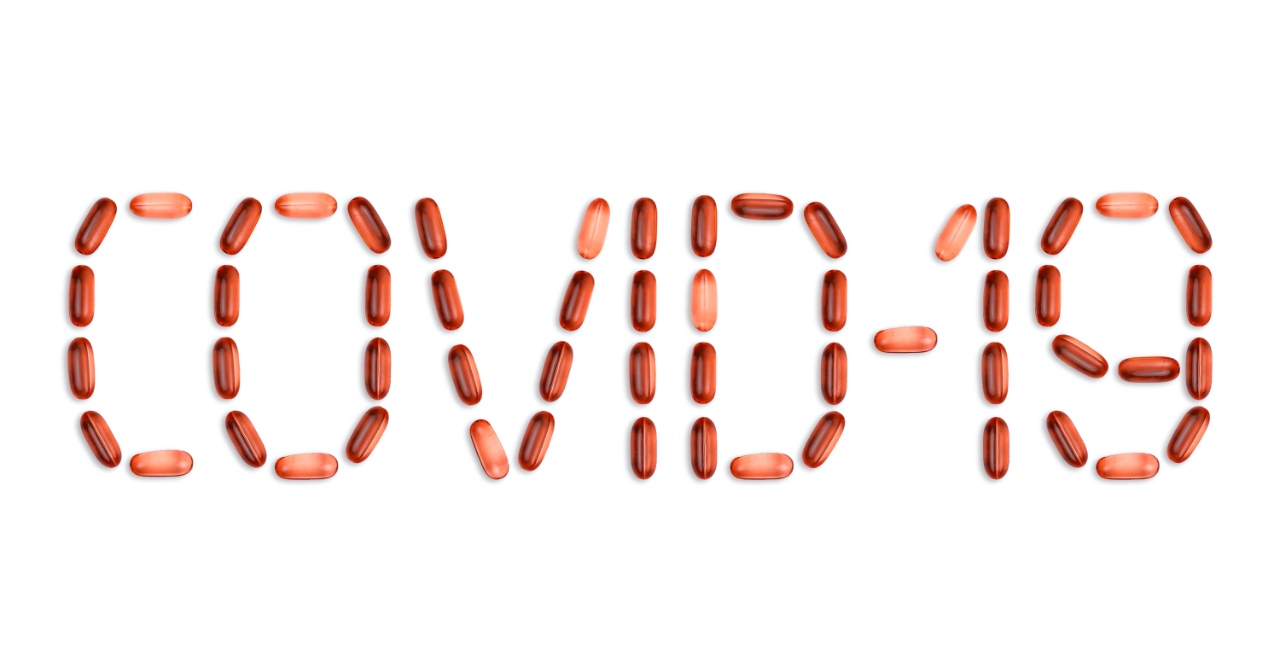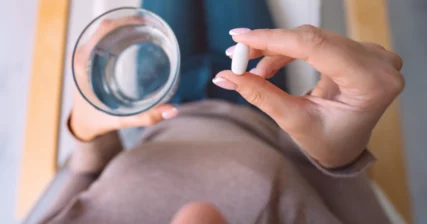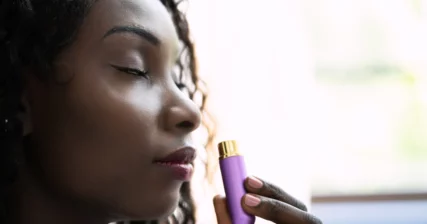Listen on: Apple Podcasts | Spotify
The prestigious British Medical Journal recently published a study that got little attention from Mainstream Media, probably because it wasn’t about getting the COVID-19 vaccine. The study showed that four dietary supplements significantly reduce COVID-19 infection risk.
Using an app developed by Zoe Global, in partnership with King’s College London, Massachusetts General Hospital, Lund University, Sweden, and Uppsala University, Sweden, researchers reviewed data from more than 400,000 users.
To summarize their findings:
In the largest observational study on SARS-CoV-2 infection and dietary supplement use to date on over 400,000 app users from three different countries, we show a significant association between users of omega-3 fatty acid, probiotic, multivitamin or vitamin D supplements and lower risk of testing positive for infection with SARS-CoV-2.
Louca P, et al.
Interestingly, supplement use seemed to be more effective in women than men in relation to COVID-19.
What makes these supplements especially effective?

Feel Better Fast. Guaranteed.
Energy+, EDGE, and MentaBiotics make up the Happy Juice supplement stack, with ingredients clinically proven to:
- decrease anxiousness scores by 55%
- decrease irritability scores by 60%
- decrease fatigue by 64%
- decrease anger 54%
- decrease tension by 45%
- decrease confusion by 43%
- decrease overall distress by 49%
- increase good bacteria by 70%
- decrease negative mood by 105%
- increase positive mood by 211%
Vitamin D
One of the many health benefits of vitamin D is its impact on the immune system.
Health care providers have known for decades that low vitamin D levels increase the risk of the flu and other infections. Vitamin D affects the function of T cells and B cells.
It’s no surprise, then, that low vitamin D levels could increase the risk of COVID-19. In the BMJ study, vitamin D supplementation lowered COVID-19 risk by 9% for United Kingdom participants and by 24% for those in the United States.
Another new study, published in The Lancet, also affirmed the protective effects of vitamin D supplementation.
In summary, this updated meta-analysis of data from RCTs of vitamin D supplementation for the prevention of ARIs showed a significant overall protective effect of this intervention compared with a placebo control.
Joliffe DA, et al.
Multivitamins
Though I’m a major advocate for multivitamin use, health care practitioners often question the health benefits of multivitamins. Because they include multiple ingredients, and the supplement market includes a wide range of qualities, the research on multivitamins isn’t as in-depth as that of the individual ingredients.
However, there’s no doubt that most people don’t get enough of most micronutrients for optimal health. Any micronutrient deficiency has the potential to interfere with immune function, but inadequate zinc, or vitamins A, C, D, and E can all increase the risk of viral infection.
In the BMJ study, multivitamin use lowered COVID-19 infection risk by 13% for those in the U.K., and 12% for those in the U.S.
Read also: The Best Multivitamins for Men and Women.
Omega-3 Fatty Acids (Fish Oil)
You might be surprised to see fish oil included in this list. When most people think of fish oil health benefits, they think of heart health, fat loss, brain function, and possibly muscle growth.
Omega-3 fatty acids help support a normal inflammatory response, and inflammation plays a significant role in the immune process.
That said, it’s unclear exactly how fish oil reduces SARS-CoV-2 infection, but it does.
The data from the BMJ shows fish oil supplementation lowers COVID-19 risk in the United States by 21% and in the United Kingdom by 12%.
Probiotics
It’s often said that “70% of your immune system lies in your gut.” Whether that’s an accurate percentage or not, the point is that your gut health plays a crucial role in immune function.
That doesn’t mean your gut only protects you from pathogens that reach your gut. In reality, the bacteria in your intestines produce metabolites and other compounds that enhance immune function throughout the body.
In fact, research shows that the balance of good and bad bacteria in the gut impacts the function of immune cells even in the lungs.
Alveolar macrophages act as patrols in the lung tissues, causing an immune response when they encounter pathogens. Probiotics affect the ability of those macrophages to carry out their jobs.
Probiotics also play a role in maintaining your mood, and a depressed mood suppresses immune function. So, it’s possible the mood-enhancing effects of probiotics could also help lessen infection risk.
According to the BMJ study, probiotic use lowered SARS-CoV-2 infection risk by 18% in the U.S. and 14% in the U.K.
Read also: Health Benefits of Probiotics: Your Guide.
Diet, Exercise, and Sleep
While it’s common for supplement users also to eat better and exercise more, with such a large sample size, the researchers were able to weed out the effects of diet and exercise and showed that the above supplements reduced infection risk even outside of a healthy diet and lifestyle.
That said, I must stress this point:
No supplement is so good that it offsets the effect of a good diet and lifestyle. No diet and lifestyle is so good that it can’t benefit from supplementation.
If you hope to avoid COVID-19 while eating junk food, surviving on minimal sleep, and skipping out on following a good strength training program, you’re foolish.
To build and maintain a strong immune system, you must:
- Sleep at least seven hours every night
- Strength train three to five times per week
- Eat a high-protein diet
- Take your Foundational Five supplements
- Maintain a sense of emotional balance
The majority of the population hopes an unproven vaccine will keep them from getting COVID-19, yet you have a far more powerful, God-given immune system that combats all kinds of disease. You just need to take care of it, and it will take care of you.
Read also: Masks and Face Coverings: Who’s considering the collateral damage?
References
Clarke, Thomas B. “Early Innate Immunity to Bacterial Infection in the Lung Is Regulated Systemically by the Commensal Microbiota via Nod-Like Receptor Ligands.” Infection and Immunity, vol. 82, no. 11, American Society for Microbiology Journals, Nov. 2014, pp. 4596–606. iai.asm.org, doi:10.1128/IAI.02212-14.
Jolliffe, David A., et al. “Vitamin D Supplementation to Prevent Acute Respiratory Infections: A Systematic Review and Meta-Analysis of Aggregate Data from Randomised Controlled Trials.” The Lancet Diabetes & Endocrinology, vol. 9, no. 5, Elsevier, May 2021, pp. 276–92. www.thelancet.com, doi:10.1016/S2213-8587(21)00051-6.
Louca, Panayiotis, et al. “Modest Effects of Dietary Supplements during the COVID-19 Pandemic: Insights from 445 850 Users of the COVID-19 Symptom Study App.” BMJ Nutrition, Prevention & Health, Apr. 2021, p. bmjnph-2021-000250. DOI.org (Crossref), doi:10.1136/bmjnph-2021-000250.
Photo by Volodymyr Hryshchenko on Unsplash



